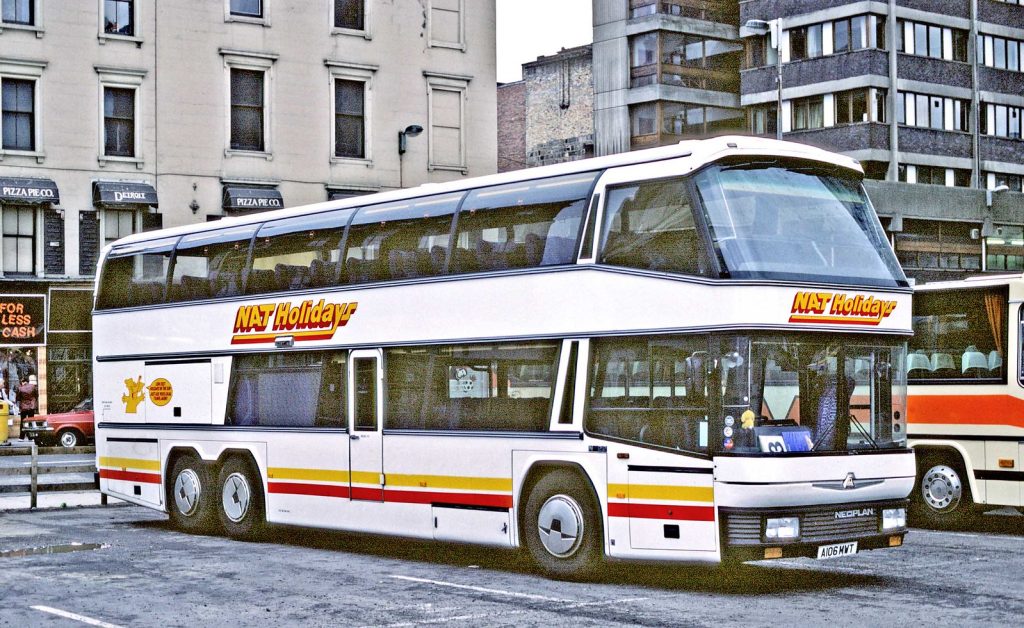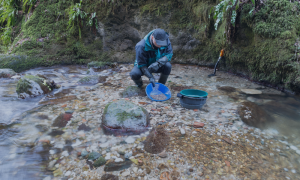A Bygone Era of British Coach Travel

In the golden age of British package holidays, NAT Holidays was a name that stirred fond memories of sun-soaked getaways and long coach journeys filled with excitement and anticipation. Established as a budget-friendly travel company, NAT Holidays was part of a broader movement that revolutionised how working and middle class families in the UK experienced foreign travel. As charter flights and tour operators began to expand in the 1970s and 1980s, NAT Holidays carved out its own niche by offering accessible coach holidays to continental Europe, most notably to destinations like the Costa Brava, a sun-drenched stretch of Spanish coastline that became synonymous with the British love affair with Spain.
NAT Holidays made it possible for people across the UK to travel abroad affordably. At a time when air travel was still seen as a luxury for many, the company provided an alternative that was both cost-effective and sociable. For many travellers, including myself, it was an unforgettable way to experience the Continent. The journey itself, by coach through the night, across France and into Spain, was a major part of the adventure. These holidays, though simple, offered a sense of independence and freedom that defined a generation of British holidaymakers.
With packages that included transportation, hotel accommodation, and often meals, NAT Holidays appealed to families and couples seeking value and a break from routine. The Costa Brava, with its reliable sunshine, Mediterranean charm, and lively resort towns, quickly became one of their best-selling destinations. NAT’s coaches would depart from cities across the UK, filled with anticipation as travellers set out for the beaches of Lloret de Mar, Tossa de Mar, and beyond.
At its peak, NAT Holidays was a prominent player in the coach holiday sector, alongside other contemporaries like Wallace Arnold and Shearings. It tapped into the national sentiment of post-war optimism and the growing desire to see more of the world. The experience was more than just a holiday, it was a cultural bridge, a way for many Britons to experience European lifestyles firsthand for the first time.
However, as the 1990s approached, the landscape of travel began to shift dramatically. The liberalisation of the airline industry and the rise of low-cost carriers made air travel more accessible than ever before. Suddenly, holidaymakers who had once opted for coach travel could now book cheap flights to the same destinations in a fraction of the time. The appeal of spending nearly 24 hours on a coach waned rapidly. Alongside this, increasing competition from new-age tour operators and changing consumer preferences began to erode NAT Holidays’ market share.
The company struggled to adapt to the fast-evolving travel industry. Unlike some of its competitors who diversified or upgraded their offerings, NAT Holidays remained rooted in a model that was quickly becoming obsolete. The romantic charm of coach travel gave way to the speed and convenience of air travel, and consumer expectations grew in tandem. The digital revolution further compounded the pressure, as online booking platforms emerged, making independent travel planning easier and more appealing than packaged coach holidays.
Eventually, NAT Holidays ceased operations, joining the ranks of many once-loved British travel brands that couldn’t withstand the rapid changes in the industry. Its demise marked the end of an era, a time when holiday dreams were wrapped in the gentle sway of a coach, the scent of duty-free sweets, and the camaraderie of fellow travellers bound for the Spanish sun.
For those who experienced NAT Holidays firsthand, like myself in the 1980s, the memories remain vivid. That journey to the Costa Brava was more than a simple getaway, it was a rite of passage, a window into another world, and a formative travel experience. While the company may be gone, its legacy lives on in the stories of those it carried across borders, and in the nostalgia for a simpler, more communal kind of travel.





